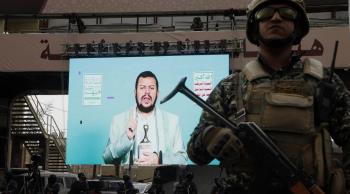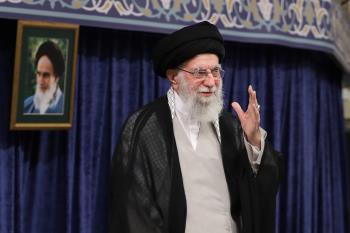Alwaght- According to the media reports, the Free Syrian Army, one of the Syria’s opposition groups, has turned down a Russian air support offer to help press ahead with its battle against ISIS terrorists. The Russian Foreign Minister, Sergey Lavrov, has earlier said that the Free Syrian Army was a myth, having no concrete existence on the ground. On October 24, FM Lavrov said that his country would support general elections in Syria, adding that as long as the patriotic Syrian opposition groups, including the Free Syrian Army, were engaged in battle against the extremist groups, specifically ISIS terrorist group, Russia would keep backing them militarily.
On the other hand, Asam al-Rais, a spokesman for the Free Syrian Army, has rejected, in an interview with the BBC, the Russian suggestion for supportive airstrikes, saying that the armed opposition group had no need for the Russian aid, and it was not a trustworthy country. The spokesman added that President Bashar al-Assad was not part of political solution in the country, and the Free Syrian Army would keep on fighting him. It must be noted that Free Syrian Army is one of the US-backed Syrian opposition groups, and in addition to battling in fronts against the Syrian government’s forces, it is involved in a fighting against ISIS in the country.
Moscow’s help offer to the Syrian opposition groups came after the US and President Bashar al-Assad’s opposing countries claimed that the Russian fighter jets’ airstrikes have targeted the Free Syrian Army’s positions rather than hitting those of ISIS. Russia has called on the West to share information about the positions of their backed Syrian opposition groups, so-called moderate opposition and Free Syrian Army, in order to avoid incidents in the military operations. The Western countries, however, have doubted the Russian request again, claiming that Moscow is seeking data of the locations of the Syrian opposition to hit them more precisely.
It was after all these claims that Russia has moved in, announcing readiness to support the Western-backed Syrian opposition fractions. But this time the Free Syrian Army has claimed that Russia was not trustable, and the group would not collaborate with a government killing its opponents.
The question that rises is that why Russia has suggested giving help to the Syrian government’s most relentless opposition group, and, on the other side, why the Western countries have rejected such an offer by Moscow.
The answer to the first question is that while Russia is well aware that an outright military win for al-Assad is impossible despite the Russian supportive wide-ranging air strikes, as they think that a military victory is profitable only if it is transformed to a political leverage at the negotiations. In 2014 and 2015 Russia held two rounds of dialogue, dubbed Moscow 1 and 2, between President al-Assad's government’s representatives and members from the Syrian opposition groups. But the major Syrian opposition groups rejected talking to al-Assad’s representatives, and refused to take part in the negotiation sessions held by Moscow.
Amid such conditions, it seems that Russia aims to cooperate with the West in order to urge the moderate Syrian opposition movements such as the Free Syrian Army to gather them together in Damascus, pushing them to agree on a power-sharing formula. The actualization of such a process could shift the aim of such armed groups as Free Syrian Army from the Syrian government’s forces to the ISIS terrorists, especially that such armed opposition groups enjoy a remarkable fighting potentials similar to those of ISIS in the battlefield. Besides, using such a plan could help decrease casualties of coalition of the Resistance Axis, which includes Iran, Syria and Lebanon’s Hezbollah.
On the other hand, the West's rejection of Russian offer is due to the fact that West is not confident of Free Syrian Army’s role-taking capacity; therefore the Western countries prefer to hold the card of an unknown and illusory opposition group in their game with Russia.
All in all, it must be noted that the complexity of the Syrian crisis has taken into more complicated stages with Russia’s military entrance. Therefore, as Russia struggles to use all of its playing cards in Syria, the possibility of some dealing between Moscow and other influential players in the Syrian crisis cannot be ruled out.


























